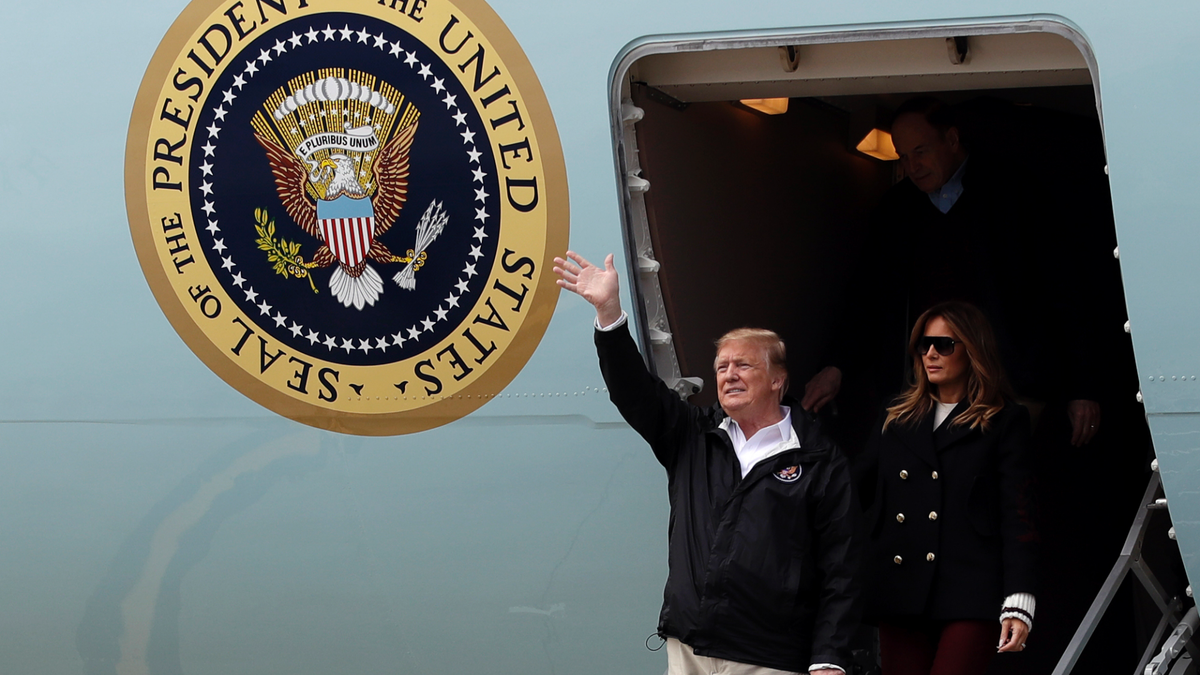
President Donald Trump and first lady Melania Trump arrive on Air Force One at Lawson Army Airfield, Fort Benning, Ga., Friday, March 8, 2019, en route to Lee County, Ala., where tornados killed 23 people. (AP Photo/Carolyn Kaster)
WASHINGTON – The Trump administration is eyeing a plan to seek more money from allied European and other nations where American troops are based.
Several U.S. officials said Friday that the White House has asked the Defense Department to gather data on the costs of keeping troops in other countries and how much those nations contribute to the expenses. The officials weren't authorized to publicly discuss internal deliberations and spoke on the condition of anonymity.
President Donald Trump has waged a lengthy, public campaign to get NATO allies to meet the goal of spending 2 percent of their gross domestic product on defense. And in the last two years, a number of allies have increased their spending.
The officials said this latest effort is along those lines. They said the collection of data could be used in subsequent meetings and discussions to pressure allies to help offset the costs of having U.S. troops within their borders.
The plan was first reported by Bloomberg.
National Security Council spokesman Garrett Marquis said that getting U.S. allies to "increase their investment in our collective defense and ensure fairer burden-sharing" has been a long-standing U.S. goal.
"The Administration is committed to getting the best deal for the American people," Marquis said in a statement issued Friday.
He declined to provide details on any ongoing deliberations.
Most NATO allies have a U.S. presence, but there are larger bases and military populations in countries such as Germany, England, Japan, Italy, Kuwait, Qatar and Bahrain.
Derek Chollet, former assistant defense secretary for international affairs, said that allies should pay their fair share. But, he said, the bases serve critical U.S. interests and must not be considered charitable contributions.
For example, key U.S. military commands that oversee operations in Europe and Africa are located in Germany as well as the Landstuhl Regional Medical Center, where thousands of American troops were treated after injuries in the Iraq and Afghanistan wars.
"The fact is that U.S. bases are an essential part of protecting American interests — in Europe, Asia, Africa or the Middle East," said Chollet, now with the German Marshall Fund of the United States. "Moreover, those countries that host our troops want to be our partners, and the message he (Trump) is sending is that we don't care. This is totally self-defeating."
Just last week, South Korea and the United States signed a deal that would increase Seoul's financial contribution for the deployment of U.S. troops in the Asian country. After rounds of failed negotiations, chief delegates from the two countries last month agreed on Seoul paying about 1.04 trillion won, or $924 million, in 2019 for the U.S. military presence, up from about $830 million last year.
There are about 28,500 U.S. troops in South Korea.





















